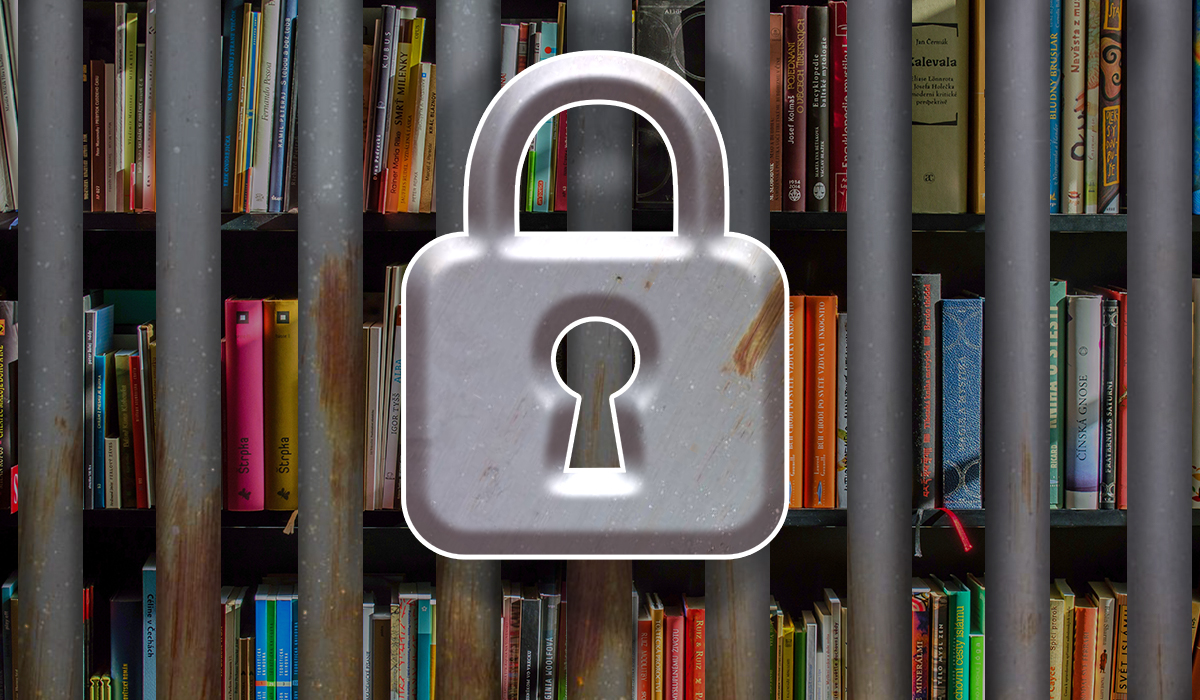Prison Censorship Should Be a Bigger Discussion in Banned Book Week


While the American Library Association hosts discussions and programming around banned books in public institutions and libraries, the topic of prison book access is lacking. They do have resources and guides to donating books (including to prisons), but the advocacy side for those incarcerated is mostly left up to organizations that do this year-round. This is probably because, as a nation, people aren’t ready to confront their own bias against those incarcerated (even for non-violent offenses), and advocates get labeled “radicals” or “hippies.”
Some books frequently banned from prisons are works by Frederick Douglass, Alice Walker, Shakespeare, Stephen King, George Orwell, Anne Rice, James Patterson, many holy books that are not the Christian Bible, and thousands more.
Common reasons are sexually explicit imagery/text (it doesn’t matter the context), the book helping hide/plan criminal schemes, encouraging deviant sexual behavior (???), information on drugs, information on weapons/weapon-making, or having contraband in it. Instead of going down how almost each one of those is used to exploit and dehumanize incarcerated people, let’s talk about the most nefarious of all general rules.
One reason the Texas Department of Criminal Justice (TDCJ) bans books is if:
It contains materials that a reasonable person would construe as written solely for the purpose of communicating information designed to achieve the breakdown of prisons through offender disruption such as strikes, riots, or security threat group activity.
While this is the language used for TDCJ, many other prison systems across the country (including territories and military bases) have a similarly worded clause in guidelines. This vague language allows them to ban books about civil rights, race/racism (as well as other isms), social studies, or really anything. Because prisons can be private, state (over 50%), country/local, or federally-run, these rules and restrictions vary in severity and application between systems. Needless to say, but the type of incarceration (general populations vs. solitary confinement) also affects book access.
When a journalist from The Marshall Project asked for an updated book ban list from the TDCJ, they were asked to pay $400 for a spreadsheet listing the titles.
I asked the Texas prison system for an updated list of banned books and they have so many banned books that they want to charge me $400 for a spreadsheet listing them.
This is astonishing in part because it is a list that already exists. pic.twitter.com/Ys0r2snKFt
— Keri Blakinger (@keribla) October 27, 2020
Books can be sent back or rejected for misspellings, where the book was mailed from, notes inside, letters attached, if it is hardback, and many other reasons. All of these reasons (like the type of books rejected) are under the guise of “protection.”
I know this phrase gets old, but the pandemic made this worse for many incarcerated people. On top of overcrowding, lack of masks/sanitizer, medical experimentation (giving inmates ivermectin, saying they were vitamins), and more, they are on lockdown mode for the most part. Prison lockdowns mean no access to libraries, classes, or any social spaces (visitation, etc.).
What can you do to help?
There are tons of organizations that help incarcerated folks access books year-round and bring attention to the biased nature of prisons’ banned books to the press. Many of these organizations need volunteers, but all of them need money and books. Some also look for writers to become pen pals.
- Inside Books Project (Texas)
- Women’s Prison Book Project (national)
- Books to Prisoners (national)
- Books Through Bars (Pennsylvania, New York, New Jersey, Delaware, Maryland, and Virginia)
Another indirect way to aid is to educate yourself about the nature of the prison system and about prison abolition. These are titles such as The New Jim Crow: Mass Incarceration in the Age of Colorblindness by Michelle Alexzander, The End of Policing by Alex Vitale, and Are Prisons Obsolete? by Angela Davis. These books are banned in many prisons because the state fears educating the public, and for that terrible reason from TDCJ mentioned earlier.
The way prisons exist (purposely) acts to strip all humanity and dignity out of people—those people being disproportionally poor, Black/brown, and disabled (mentally, physically, etc.). So, books can increase literacy, lower recidivism, improve critical thinking skills, provide answers as to the systems designed to put them there (and keep them there), or just relieve the pain of incarceration through escapism—and their access is weaponized against them, all on our dime and in the name of our safety.
(image: Alyssa Shotwell)
Want more stories like this? Become a subscriber and support the site!
—The Mary Sue has a strict comment policy that forbids, but is not limited to, personal insults toward anyone, hate speech, and trolling.—
Have a tip we should know? [email protected]
